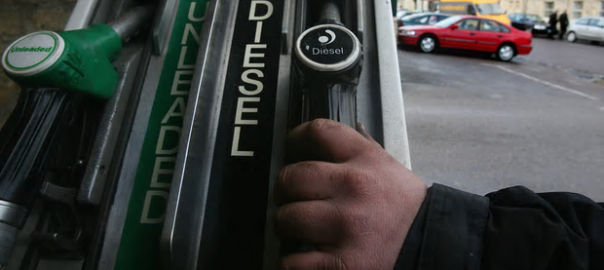Is this the nightmare future for owners of today’s diesel cars? It’s 2020 and you are already taxed out of driving into the city centre. At the pumps the price of diesel has soared. The low-emission zone has extended to your suburb. Do you carry on paying extra, or sell for a small fraction of what you paid?
The mayor of London has effectively banned older diesel cars from central London from next October, and the same drivers face a wider ban from a larger area, possibly as soon as 2019. Meanwhile, a report this week by the mayor’s office proposed higher parking charges for diesel owners across the capital.

Things could also be even worse after next week’s budget. After years of pro-diesel policies, chancellor Philip Hammond could be selecting reverse, announcing a major shift in the way both diesel fuel, and the cars, are taxed.
The Society of Motor Manufacturers and Traders this week issued a plea to the government not to come down hard on diesel, as it revealed figures suggesting Britain’s love affair with such cars is already slowing. In January registrations were 4.3% lower than the year before, while those of petrol cars grew 8.9% – unthinkable two or three years ago. British Car Auctions, meanwhile, says the traditional price premium commanded by used diesel cars has narrowed considerably in the past 12 months.
Steve Gooding, director of the RAC Foundation, predicts price falls.
“Will all diesels be worthless in five years? Most unlikely. Will some of them be worth significantly less than they otherwise might have been? Almost certainly.”
He says that while the sale of new diesels in the UK has barely been dented, the market for new and secondhand vehicles looks “a lot less certain”, and in continental cities that have seen restraints on diesel use, older car values have fallen.
“It could be a bonus for high-mileage, bargain-seeking motorists who mostly drive out of town, but that will be scant comfort to the out-of-pocket urban vendor who probably thought they were doing the environmentally correct thing in choosing diesel.”
There is a precedent of sorts for price falls. Back in 2012, drivers of older diesel-engined campervans and a host of other older vehicles, including minibuses, saw values plummet after their use was included in London’s Low Emission Zone covering most roads inside the M25. Owners had to either install new exhaust systems, or sell to avoid paying a £100 or £200 charge for every day the vehicle was driven.
Read more: The Guardian
